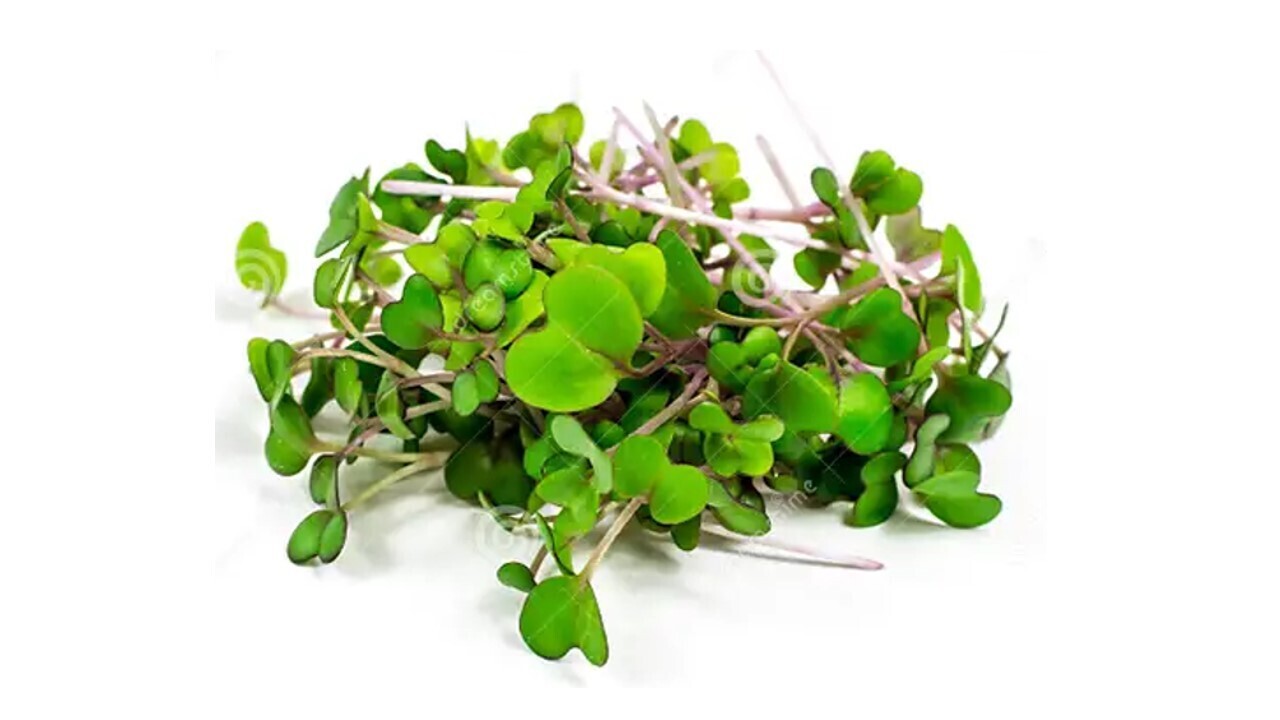Red Cabbage
Portion: 100g of pure goodness for 5-6 salads or smoothies

General Nutrition: Red Cabbage is another powerhouse microgreen. A 100g serving contains 208% RDA of Vitamin K, 163% Vitamin C, and 160% of Vitamin E. Their mineral content is not as rich with on average 10% RDA of iron, calcium, potassium, phosphorus and magnesium respectively. In addition, Broccoli microgreens contain 140% RDA of Lutein which is a carotenoid that helps to protect the eye from damage caused by harmful light which may reduce the risk of age-related macular degeneration.
Bioactive compounds: Red Cabbage microgreens are an excellent source Phenolic compounds. "The potential health advantages of dietary polyphenols have been outlined in several studies, including antioxidant activity, neutralization of metal ions, prevention of cancer and cardiovascular diseases, management of diabetes and obesity, and anti-inflammatory effects." - Bioactive compounds in cruciferous sprouts and microgreens and the effects of sulfur nutrition. Wenjing Zeng, Jing Yang, Yong He and Zhujun Zhu. In particular, Red Cabbage has very high concentrations of the Phenolic compound, Anthocyanin. These compounds are especially effective in reducing blood pressure and inflammation. https://www.healthline.com/nutrition/anthocyanin
Red Cabbage juice has been identified as a source for healing ulcers and safeguard patients’ stomach linings. Fresh cabbage juice has been shown in controlled studies to speed up the healing of peptic ulcers, cutting it to 10 days. For patients receiving conventional treatment, the average healing time reached 37 days. These benefits are understood to be derived from the amino acid methionine. https://www.healthline.com/nutrition/cabbage-juice
Red Cabbage microgreens contains more than 300 mg of nitrate per 100 grams (g). It has been shown that high intakes of dietary nitrate lower blood pressure, reduce the amount of oxygen required during exercise, and improve athletic performance. “Ingestion of nitrate from beetroot juice, rocket salad beverage, and spinach beverage lowers blood pressure to a greater extent than ingestion of the same amount of nitrate provided as sodium nitrate. These findings imply that nitrate-rich vegetables can be used as dietary nitrate supplements” Nitrate-Rich Vegetables Increase Plasma Nitrate and Nitrite Concentrations and Lower Blood Pressure in Healthy Adults. Article in Journal of Nutrition April 2016
